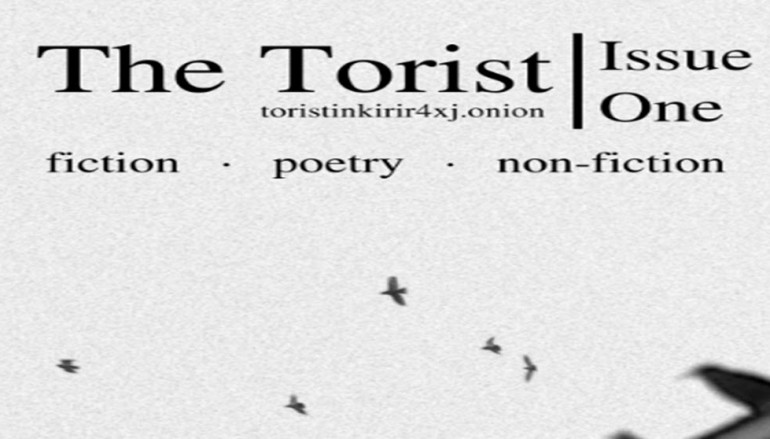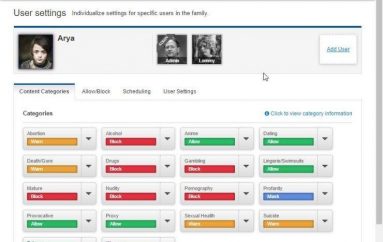
The Dark Web Has Its Own Lit Magazine
WHEN MOST PEOPLE think about the dark web, they envision the Silk Road, terrorist networks, pornography, and other sinister threats. They certainly don’t imagine finding poetry. Or short stories. Or creative nonfiction. That’s a preconception the founders of The Torist, the first literary magazine on the encrypted network Tor, hope to correct.
“There’s no reason our innocent activities—creative or mundane—should be wiretapped, and there’s every reason they shouldn’t be,” G.M.H., the anonymous co-founder of The Torist, wrote in an email to WIRED. In this post-Snowden, post-Panama Papers era, G.M.H. sees The Torist introducing encryption to a broader audience—and giving people another entry point to the dark web.
The Poetry of Anonymity
G.M.H. and his co-founder, University of Utah communications professor Robert W. Gehl, met on the dark-web social network Galaxy. The two avid readers (G.M.H.’s pseudonym is inspired by 19th century English poet Gerard Manley Hopkins) recognized the possibilities an encrypted literary platform presents. Using literature to bridge the gap between the dark and the “clear” webs, they reasoned, could push cybersecurity further into the mainstream.
That bridge included submissions, too. G.M.H. sought anonymous submissions through GlobaLeaks, the open-source software designed for whistleblowing; Gehl reached out to contributors through traditional networks on the clear web.
Poet and journalist Alissa Quart knew about Tor before responding to Gehl’s open call, but wasn’t a regular user. “I saw it as a place where there was criminality and black market activity, but also rebellion and political resistance,” she says. Quart, who was profiled by The New Yorker last year, wrote two poems for the first issue, both addressing topics dear to The Torist: “I thought a poem about Snowden and preserving data would speak to this audience in a different way than in a normal literary context.”
“It gets back to the time when you had to find The Evergreen Review in the stacks at the vintage bookstore.”POET ALISSA QUART
Publishing on the dark web might seem counterintuitive for authors presumably seeking exposure to a broad audience. But as Quart sees it, The Toristtaps a broader history of niche literary magazines. “The web has made cultish literary fandom harder in some ways,” she says. Anyone can find any publication online, which makes the search easier and, to her mind, less meaningful and personal. By publishing on the dark web, she says, The Torist recalls “antiquarian ways” of reading literature: “It gets back to the time when you had to find The Evergreen Review in the stacks at the vintage bookstore.”
Cat Videos Can Be Secure, Too
While The Torist might be the first literary magazine on the dark web, Tor continues creeping toward mainstream applications. Fifty-two percent of active Tor sites are legalunder US law, for example, and 1 million users access Facebook through Tor each month. “The notion that Tor is only good for buying ecstasy from a stranger is just not an accurate description of the platform’s capabilities,” says Aram Sinnreich, a communications professor at American University and author of The Piracy Crusade.
Most people recognize the dark web’s value as a media outlet in repressive countries, but Sinnreich sees global relevance in publications on Tor. “Someone might come to Tor to see a movie they don’t want to pay for,” he says, “but it also allows them to get access to political communications and ideas that are being systematically excluded from the clear internet.” People ostensibly can use Tor much like they use the clear web, but with greater privacy: for reading unfiltered news, watching cat videos, oversharing on Facebook, ordering Seamless.
“Someone might come to Tor to see a movie they don’t want to pay for, but it also allows them to get access to political communications and ideas that are being systematically excluded from the clear internet.”PROFESSOR ARAM SINNREICH
But first, public understanding of the platform must change. “Although Tor hidden services are easier than ever to access, there’s still an aura of ‘techno-elitism’ associated with them,” says Gehl. He hopes to change that, one curious reader at a time. Like many people, I don’t know much code, I don’t have a Bitcoin account, and I’ve always envisioned the dark web as something vaguely sinister that I had neither the skills nor the need to access. Googling “how to access Tor” made me feel devious and a little nervous.
But once you download and install Tor, using it is very straightforward. (So much for my imagined transformation into a black-hat hacker.) Scrolling through The Torist feels a lot like reading any other zine: the works range from poems to fiction to nonfiction essays, generally touching on similar themes of cybersecurity and anonymity. You may catch more references to PGP keys than you do in, say, ZYZZYVA, but the magazine is perfectly accessible.
Although contributors are named in this issue, G.M.H. says, the majority of submissions for the second have been anonymous. That dovetails nicely with the founders’ agenda of offering dark web users an outlet for artistic expression while introducing new readers to the importance of encrypted networks. “Tor is a field normally associated with STEM, whereas zine culture is more associated with the liberal arts,” says G.M.H. The two groups may come from different backgrounds, but they share a belief in uncensored self-expression.
Through its form and content, G.M.H. hopes to change the misconceptions for both audiences. The Torist can provide literature buffs with a compelling reason to access Tor and the dark web. And the magazine’s success could convince dubious technologists that a literary magazine isn’t an anachronism. Literature can still articulate necessary truths—and the dark web can illuminate them.
Source | Wired





